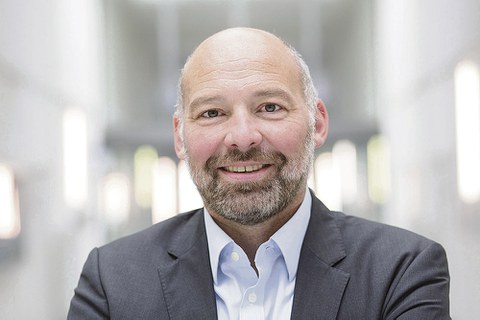Oct 06, 2020
30 years of German unity: The world acknowledges success

Das Brandenburger Tor in Berlin, lange Symbol der Teilung, heute Sinnbild der Einheit Deutschlands.
From a global perspective, the regional differences in terms of income are comparatively small
Konrad Kästner
The 30th anniversary of the German reunification should have been a year full of public celebrations: The commemoration of the period between autumn 1989 with the Peaceful Revolution of the East Germans. The monetary, economic and social union enacted on 1st July 1990.The reunification, when the German Democratic Republic joined the Federal Republic of Germany, which had been founded in 1949, adopting its legal and economic system, the military alliance and the national anthem.
The Commission "30 Years of Peaceful Revolution and German Unity", specifically founded by the Federal Government and chaired by former Minister-President Matthias Platzeck, had made numerous recommendations for the design of a modern anniversary concept. These included dialogues with citizens in the federal states, which were meant to strengthen awareness of what has been achieved and to openly address both existing challenges and painful past experiences. The focus was supposed to be on how the unification of East and West, German-German coexistence and the equality of living conditions could be promoted in order to elucidate, increase and actively shape the quality of life in its many facets in all regions throughout the nation.
Yet, the corona pandemic thwarted these ambitious plans. The formats which had been planned certainly had the potential to enhance the understanding between Germans. Current and future societal transformations and challenges were to be included. Thus, the anniversary was intended to be seized as an opportunity to utilise the experiences of societal change since 1989/90 and apply them to the current and future change processes and to facilitate encounters, art and dialogue.

Prof. Marcel Thum.
Prof Marcel Thum is one of the 22 members of this commission. He is also Chair of Economics, esp. Public Economics, at TU Dresden, and the Director of the Dresden branch of the Leibniz ifo Institute for Economic Research. For him, the economic development of the past 30 years is a success story: "The real gross domestic product (GDP) per capita in East Germany has tripled. The convergence of living conditions has made great advances. For this reason, German unification is perceived as a success story, especially abroad. At home, we tend to see more and more the distortions that do exist, for example with regard to the persisting differences in income and wealth," states Prof Thum. The life satisfaction of East Germans is approaching that of West Germans, in part due to the consistently decreasing unemployment rate, which for a long time caused a sense of "depression". Noticeable regional differences in income are found in all countries and are not merely a peculiarity of the German unification process. In comparison with its European neighbours, Germany - despite the economic burden of unification - is one of the countries in which disposable incomes do not differ significantly between regions. But what can politics do to reduce the feeling of being "second-class citizens" still voiced by many East Germans? "The main task of politics is to ensure equal opportunities for all German citizens, especially in view of the imminent rapid demographic change," Thum stressed. "Yet, federal and state policy cannot solve all problems centrally; it is not sensible to look 'upper echelons'. Rather, politics can, for example, strengthen voluntary work in order to set the necessary priorities from the grassroots level up." Prof Thum sees a cause of the still-prevalent dissatisfaction in the economically unrealistic promises that everyone would be living in the "Blooming Landscapes" within a few years. Furthermore, East Germans are under-represented in many leading economic and political bodies. "The upcoming all-encompassing generational change will reveal how the former East Germany will be represented in leadership positions, and whether the unification of the younger generations, who have attended schools and universities together, will bear fruit," concludes Marcel Thum.
The German version of this article was published in the Dresdner Universitätsjournal (UJ) on 6th October 2020. The complete issue can be downloaded free of charge from the UJ website at https://tu-dresden.de/uj or here in pdf format. The UJ can be ordered as a printed version or as a pdf file by emailing doreen.liesch@tu-dresden.de.
